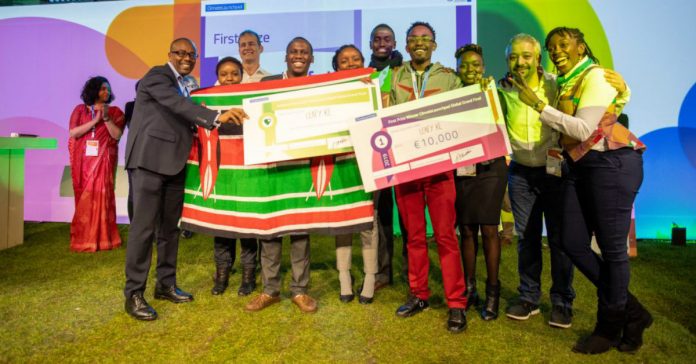While climate change is causing challenges, opportunities abound.
To unlock the potential around clean technologies towards climate mitigation and adaptation, Climate-KIC – European Union’s promoter of a low-carbon and climate-resilient world – launched the Climate Launchpad (CLP) competition.
CLP is the world’s largest green business idea competition drawing innovators from across the world.
Like last year, Kenya Climate Innovation Centre (KCIC) is the one handling Africa’s chapter of the competition this year, which will then produce representatives to battle it out on the international stage.
The Kenya finals are scheduled for Thursday (tomorrow), and for the first time it will be done virtually due to the Covid-19 pandemic. The top three local innovators will then qualify to compete with others on the continent, before the best proceed to participate in the global slugfest.
Africa Sustainability Matters caught up with KCIC chief executive Edward Mungai to shed more light on the event.
What is Climate Launchpad all about?
Climate Launchpad is the world’s largest green business idea competition, whose mission is to unlock clean technology potential and address climate change.
The competition aims to create a network of innovators determined to address the negative impacts of climate change through entrepreneurship, ranging from renewable energy, resource efficiency, waste management, agribusiness among other clean-tech innovations.
This year’s is going to be the seventh edition. Last year, the global competition attracted a total of 2,601 applications from 53 countries across Europe, Asia and Africa.
KCIC hosted the first ever Africa regional finals in 2019 in Nairobi, with the competition having attracted participants from eight African countries – Kenya, Tanzania, Uganda, Cape Verde, South Africa, Ghana, Mozambique and Nigeria.
The top three winners from the Africa finals secured direct spots to compete in the Global finals held in Amsterdam.
What benefits come with participating?
Actually, last year a Kenyan startup made the continent proud after emerging the overall winner in the global competition. The startup, Leafy Ke, converts used diapers and pads to a clean cooking gel as an alternative to charcoal and kerosene among households in informal settlements. For winning, the enterprise won €10,000 in the contest.
But beyond the prize money, participating enterprises are taken through various trainings, equipping them with the right market and business skills. And so at the end of the day, each one of them leaves armed with a new skill, whether they win or not. More importantly, they become part of bigger web of global climate-smart innovators through networking platforms this competition offers.
How many projects have made it to the Kenya national finals this year?
This year, we received 333 applications for the Kenya competition, out of which we narrowed down to a shortlist of 13 who will be competing for top three spots on Thursday 27. The wining trio will then qualify for Africa competition, and then later globally, should they outsmart their continental colleagues.
Notice that for the first time, we are holding the country finals remotely owing to coronavirus. Everything is set and we’re happy with the preparations made.
Most of the shortlisted projects belong to startups, why?
Startups and SMEs are actually better placed to provide shovel-ready solutions to modern-day crises, should they be offered support to thrive.
By their nature – small in size, more open to experiential innovation and run by youthful entrepreneurs – small enterprises can be dynamic and flexible enough to adjust to changing times. This potentially makes them a powerful growth engine and driver of positive and innovative change.
Read also: Why Denmark is financing green enterprises in Kenya



